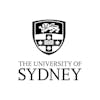|
If you’re looking for an all-in-one way to cut your household energy bills and emissions, as well as making your home a whole lot more comfortable, it’s hard to go past your windows.
Australian homes – which have been dubbed “glorified tents” – are way behind homes in countries like the United States, United Kingdom and New Zealand when it comes to using high-performance windows. Only 11% of Australian homes have installed these double or triple-glazed windows, along with better-insulated frames, compared to rates of around 80% in those other countries.
And we certainly feel the difference in Australian homes. Up to 87% of heat gain in summer and 40% of heat loss in winter is through the windows. Yet, as Trivess Moore, Lisa de Kleyn and Tom Simko report today, the reason has little to do with the local window industry’s ability to provide better windows. Their research shows it’s more a result of unambitious building regulations, lack of awareness of the benefits, window costs and the absence of government
programs to encourage their installation.
A big advantage of better windows is that the improvements they offer aren’t just limited to new constructions – most existing buildings can be retrofitted too. As overseas experience shows, the goal of making high-performance windows a standard fixture in our buildings is achievable.
Ps: Yesterday’s editorial was incorrectly attributed: it was written by our editor, Misha Ketchell, not our economics editor, Peter Martin.
|

|
John Watson
Cities Editor and Deputy Energy + Environment Editor
|
|

Trivess Moore, RMIT University; Lisa de Kleyn, La Trobe University; Tom Simko, RMIT University
Compared to roughly 80% in the US, UK and NZ, only 11% of Australian homes have high-performance windows. Installing them can transform a household’s comfort, energy use and emissions.
|

Volodymyr Bilotkach, Purdue University
Qantas might not be facing such a scandal if stronger consumer protection rules had been in place in Australia in 2022.
|

Bronwyn Carlson, Macquarie University
Conservatives and sections of the left are both advocating against the Voice, but for different reasons.
|

James Laurenceson, University of Technology Sydney
There are several good reasons why fears that a recession in China could spark a recession in Australia need to be kept in perspective.
|

Isaac Gross, Monash University
Six charts explain the Australian economy. Three of the most disturbing show living standards going backwards, productivity collapsing and household saving falling to a 15-year low.
|

Jaana Dielenberg, Charles Darwin University; Patrick O'Connor, University of Adelaide
Australia’s biosecurity system is on high alert for alien invaders. Here’s a hit list of eight baddies we believe pose the greatest threat to Australia’s biodiversity.
|

Reema Harrison, Macquarie University; Laurel Mimmo, Macquarie University
Nurses make up more than 50% of the health workforce and have untapped and under-used skills that could ease the skills gap in our health system.
|

William Partlett, The University of Melbourne
Constitutions are by nature short and incomplete documents. In Australia, parliament puts the flesh on the bones of the Constitution, including how a proposed Voice would operate.
|

Arash Javanbakht, Wayne State University
Although emotions like fear and anxiety originate in your brain, they ultimately travel through your body and make your heart race and your stomach twist.
|

Warwick Frost, La Trobe University
This year’s Burning Man Festival in Nevada has been washed out and 70,000 attendees are stuck in the mud.
|
Politics + Society
|
-
Michelle Grattan, University of Canberra
In this podcast, @michellegrattan and @amanda.dunn10 discuss the week in politics
-
Annette Greenhow, Bond University
In a landmark Senate report, the government was urged to take a greater role in overseeing compliance of concussion rules across sports leagues. Details, however, were in short supply.
|
|
Health + Medicine
|
-
Christopher Rudge, University of Sydney
How does the regulator propose to make aesthetic medicine safer for patients, and what problems might lie beyond its reach?
|
|
Environment + Energy
|
-
Nicholas Gilmore, UNSW Sydney; Martino Malerba, Deakin University; Thomas Britz, UNSW Sydney
Our research has found 30,000 farm dams which could be used as energy storage. Solar by day, hydro by night.
|
|
Arts + Culture
|
-
Michelle Arrow, Macquarie University
This new comedic musical is not just a dramatisation of the events of 1975, it is also an attempt to understand our maddening political culture.
|
|
Books + Ideas
|
-
Julianne Schultz, Griffith University
Donald Horne’s genius was his ability to capture on the page a personal intellectual journey that reflected one the nation was also taking.
|
|
Business + Economy
|
-
Aaron Gilbert, Auckland University of Technology; Ayesha Scott, Auckland University of Technology
New research has found 20% of young people are struggling to keep on top of their ‘buy now, pay later’ debt – leading to long term financial harm.
|
|
| |
|
|
|
Auckland University of Technology
Auckland, New Zealand
•
Full Time
|

|
|
Auckland University of Technology
Auckland, New Zealand
•
Full Time
|

|
|
|
|
| |
| |

|
| |
| |
| |
Featured Events, Courses & Podcasts
|
View all
|
|
1 January 2023 - 7 October 2026
•
|

|
6 July - 6 October 2023
•
|

|
15 - 17 September 2023
•
Sydney
|

|
7 September 2023
•
Camperdown
|

|
|
|
|
| |
| |
| |
| |
| |
|
|